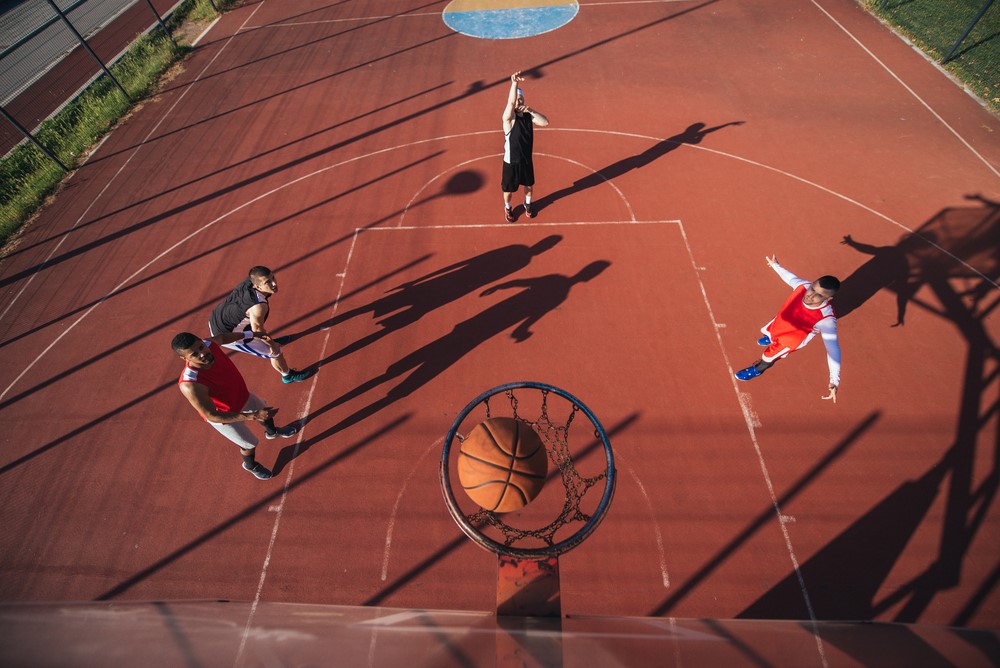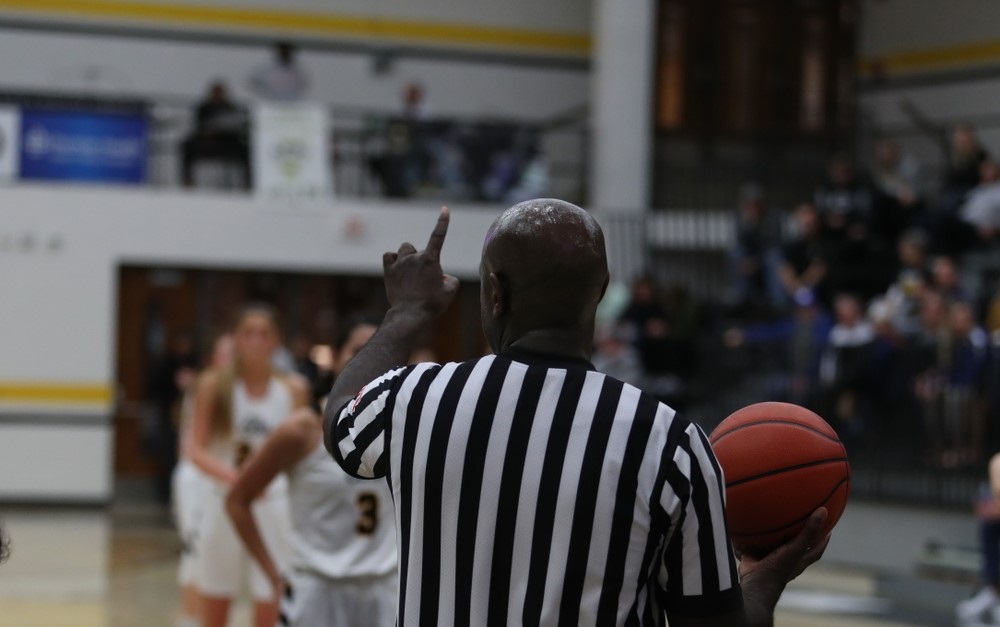
Rules and regulations are implemented to ensure each basketball game is fair for both teams. One scenario that can occur is a bonus.
When entering a bonus situation, a team earns extra free throws when the opposite team reaches the maximum number of fouls within a specific period – each quarter or half.
Being in the bonus is used to discourage players from shooting foul shots. While some fouling is unavoidable, these rules encourage players to work towards quality, well-executed shots. A foul can occur in a basketball game for many reasons, applying where the refs see fit.
Contents
What Is a Bonus in Basketball?

Bonuses in basketball keep players from taking unattractive shots for shooting or for the defensive team to run out the clock.
Also known as “the penalty for the opposing team,” the bonus happens when one team reaches the most significant number of team fouls (without penalty) in a quarter, five in the NBA and seven in college basketball games.
The opposing team then enters into a bonus, where they are given bonus free throws no matter which type of non-shooting foul is committed in the game. The throws awarded can differ depending on which level of basketball you take part in.
Bonus Rules by League

The bonus is a common term used in every league with a pretty basic meaning; the rules can vary depending on the level you are playing. While the overall theory is the same, the specifics will change to accommodate the difference in gameplay.
The NBA
All NBA games have four quarters; in each quarter, teams are allotted five fouls. According to the NBA bonus rule, the opposing team enters the bonus once the fifth foul occurs, including defensive and loose ball fouls. When in the bonus, if another foul is made, the opposite team is awarded free throws.
Unlike other leagues, the NBA has a specific set of rules for the final two minutes of a game. During this time frame, players can only make one foul; a bonus free throw attempt is awarded to the other team if a second foul is committed.
When a game enters overtime, the foul for each team is reset. The opposing team can enter the bonus after the fourth foul is committed.
The NCAA (National Collegiate Athletic Association)
Instead of the typical four quarters in an NBA game, collegiate-level basketball games are divided into two halves. Due to the difference in time, the rules for coming into bonus play differ a little in college basketball.
Instead of five fouls, the teams in the NCAA are allotted seven fouls for each half. After the seventh foul, the opposing team enters into the bonus and is given a one-and-one free throw attempt.
If a fouled player shoots and misses the first free throw, they are not given a second chance. But if they make the first free throw.
The NCAA also has a double bonus rule, where once ten fouls occur within a half, the opposing team gets two free throws, and even if the first one is missed, a second one is still awarded.
The FIBA (International Basketball Federation)
The FIBA has its own set of rules regarding the bonus. Like the NBA, each team is only allowed five fouls before the opposing team in the bonus. However, the opposing team is awarded free throws starting with the final foul and all fouls committed afterward.
Only defensive fouls are awarded during the bonus, and overtime doesn’t reset the fouls, as in the FIBA; this period is seen as an extension of the last.
High School
Even high school basketball games utilize the bonus rules. These teams follow the same rules as the men’s NCAA teams, where the bonus is applied after the opposing team’s seventh foul. Once they hit their tenth foul, the double bonus rule comes into play.
All fouls accrued by each team are reset to zero once the first half is over.
Length of the Bonus
There is no set time frame for the bonus. Once this play goes into effect, it continues until the quarter or half ends. The bonus can also start anytime; even if all fouls occur within the first few minutes of the game, the opposing team will still be awarded free throws for all additional fouls moving forward.
Because the bonus can last for a long time, teams must stay vigilant, focused, and on point. On the other hand, the opposing team should take this opportunity to play with authority and put the other team into positions where a foul might occur.
Is the Bonus Important in Basketball Games?
Some will argue that the bonus should be removed from the game since it adds more free throws, slowing the game down. Although that may be true, keeping these rules in place ensures that teams don’t commit non-shooting fouls during crucial times during a game.
Non-shooting fouls typically make the team restart their positions. If it wasn’t for the bonus rules, this could be abused to run out the clock, making the game unfair and, honestly, pretty boring.
Like all the other rules, regulations, and standards outlined in various sports, the bonus is applied to balance out gameplay and keep you on the edge of your seat during the game.
Final Thoughts
There is nothing fun about watching a game where fouls are going on every minute, stopping the clock, and resetting players into their original positions.
Thankfully the bonus in basketball helps to create equal playing fields for both teams, ensuring fouls aren’t purposefully used for unfair outcomes.
Understanding the bonus in basketball can get confusing, especially if you are new to the concept. Hopefully, we’ve answered your questions, and you can now follow your favorite games and every play.